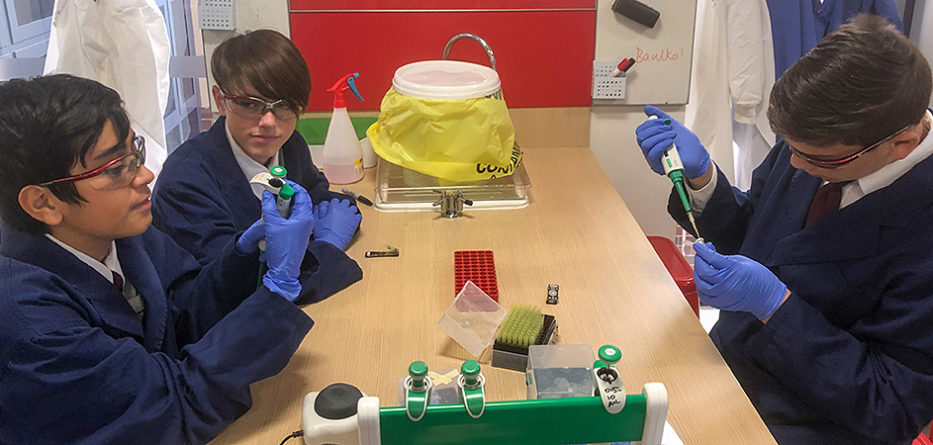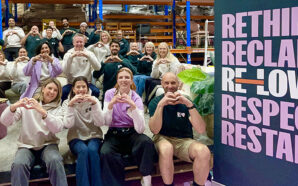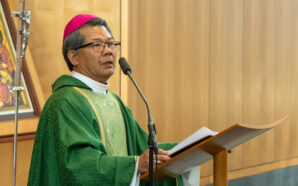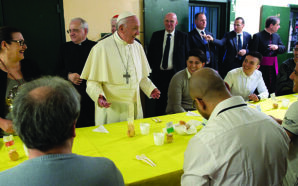“YOU DECIDE”, reads the green sign that leads the St Thomas Aquinas Primary Springwood Science Week schedule, prompting students to come up with their own scientific investigation to answer a question they might have.
It’s one of a number of fun science investigation challenges students are taking on as part of their remote learning during 2021 National Science Week and highlights how Catholic Education Diocese of Parramatta (CEDP) schools are using research-based learning to engage students with their education.
“Research is all about questions so we encourage students to question and seek answers themselves under the teacher’s guidance,” said Santa Sophia College Gables Science Teacher Ivy Magistrado. “Sparking their curiosity through research like this really helps them stay motivated.”
While St Thomas Aquinas Primary’s Science Week schedule is proving a remote learning hit as parents send in photos and videos of students attempting challenges such as the Submarine Race, Zoom Egg Vehicle and Coin Foil Boat, there are also many examples of the positive impact research-based learning is having on primary and secondary students during face-to-face learning too.
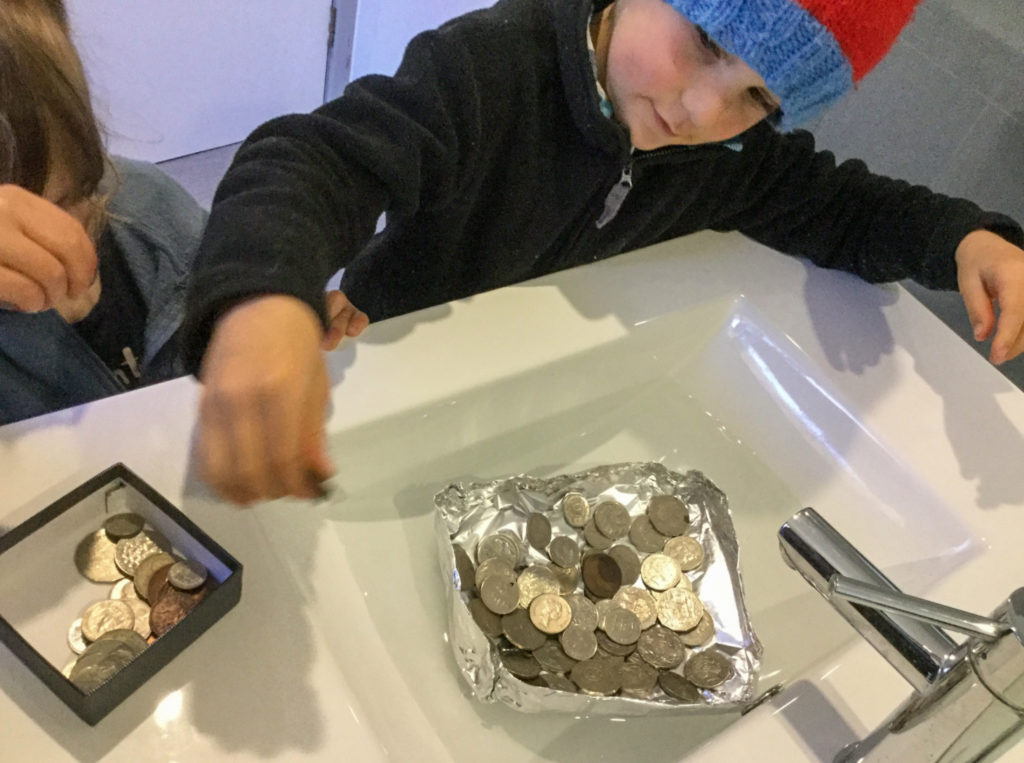
Students from St Thomas Aquinas Primary, Springwood, create coin foil boats as part of their Science Week schedule. Image: Catholic Education Diocese of Parramatta/Supplied
Throughout Term 2 and the current lockdown, Year 4 students at St Thomas Aquinas Primary have been learning about mechanical advantage by investigating how a pulley system might help rescue a beached whale.
“We’ve had lots of zoom sessions together as they’ve continued their research this term,” said St Thomas Aquinas Primary Year 4 Teacher Mary Espiritu. “This type of learning is so engaging for the students. They’ve really taken the steering wheel with this research and are showing so much independence. It’s so rewarding seeing students learn this way and much more effective than me telling them what they need to know.”
Secondary students at Santa Sophia Catholic College and Marian Catholic College Kenthurst have loved the study of exoplanets (plants outside the solar system) and pondering whether life might exist in the ‘Goldilocks Zone’ (where water can exist) surrounding far off planets or the study of bioelectrogens which looks at how microbes eat waste to generate electricity.
“It’s all about that sense of science being about stepping into the unknown and trying to work out new things,” said Paul Stenning, CEDP Head of Mathematics and Science. “The research orientated approach to learning science is exactly what scientists do. They look into things we don’t know the answers to.”
“For students to learn about DNA and undertake genomic sequencing at a Year 9 level is quite astounding,” Paul said of the students’ research into bioelectrogens. “That’s what our syllabus is all about. Promoting enquiry which leads to strong learning and great engagement for our students.”
“They experimented with what conditions and food waste the biogens preferred,” explained Santa Sophia Science Teacher Ivy Magistrado. “They seem to like pizza! Well, not exactly pizza, more like dishwashing water from pizza waste. Collecting the mud, getting their hands dirty, making the mixtures, the students really enjoyed it. They were genuinely excited to measure the electricity every day.”
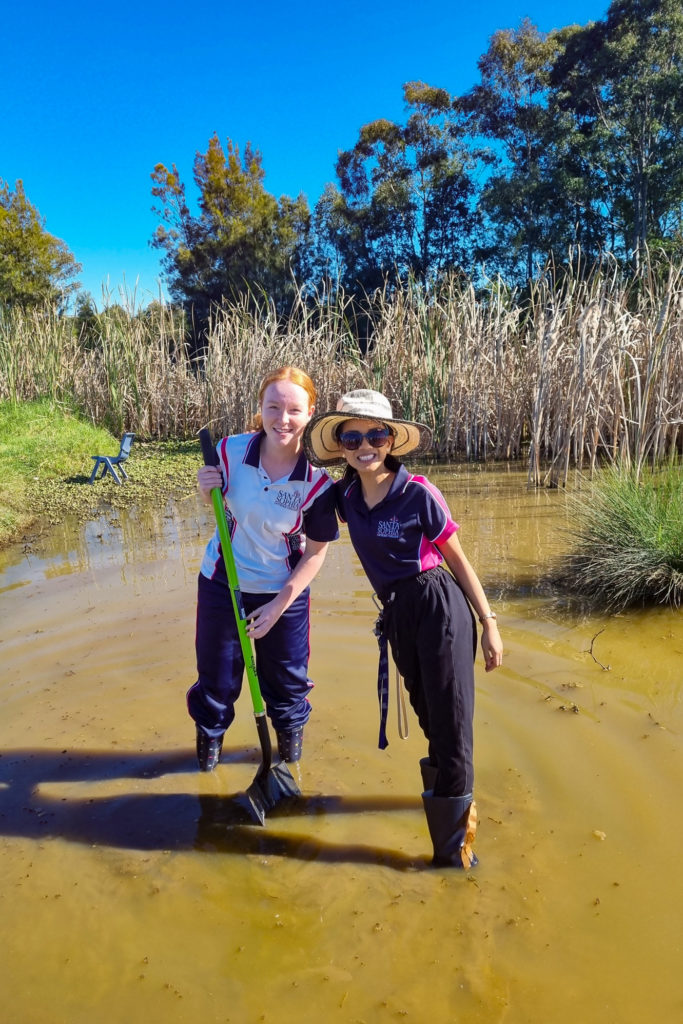
Santa Sophia Catholic College Science Teacher Ivy Magistrado (right) helps students collect mud to create a mixture suitable for the study of electrogens. Image: Catholic Education Diocese of Parramatta/Supplied
Dean Simonson, Science Teacher at Marian Catholic College explained how learning about exoplanets is helping his students develop a deeper understanding of the world and universe that we live in.
“It’s been great to see students actually looking up to the night sky and thinking about what exoplanets might be orbiting the stars they’re seeing and understanding it’s not just a little light in the sky,” he said. “A lot of my students have been fascinated to learn about certain planets that might be located in the ‘goldilocks zone’ and potentially support life.”
Dean explained how the study of bioelectrogens is also helping them learn more about the world.
“The science of bioelectrogens relates to sustainability,” he said. “In India and other parts of the world, the science is already being used as a renewable energy source to power sewerage plants.”
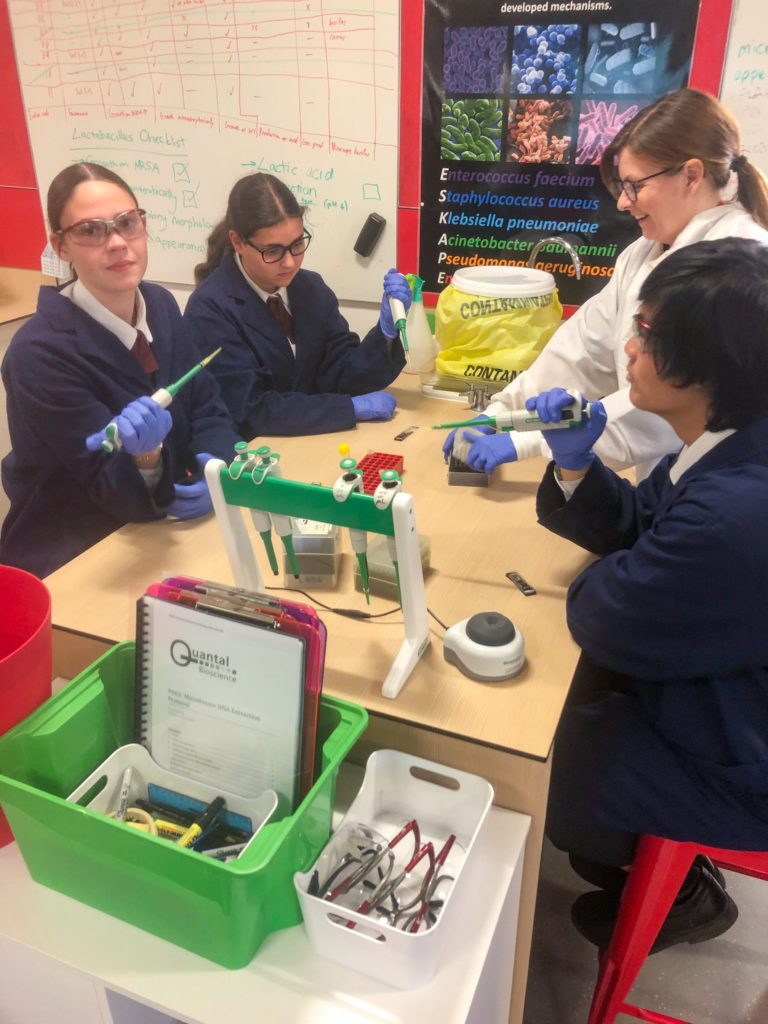
Marian Catholic College students got in the laboratory to learn about genomic sequencing to determine how microbes generate electricity. Image: Catholic Education Diocese of Parramatta
Paul and the students are excited to showcase their work at a special virtual STEM MAD event to be held at the start of Term 4. The event celebrates student learning initiatives in science, technology, engineering and mathematics.
“All this great learning is giving students the knowledge and skills to be able to think confidently about careers in science and even if not a career, it makes them highly scientifically literate,” Paul added. “When they hear things on the news, they can come back to their learnings at school and have a great understanding and have a critical mind about scientific concepts.”
With thanks to Catholic Education Diocese of Parramatta.




